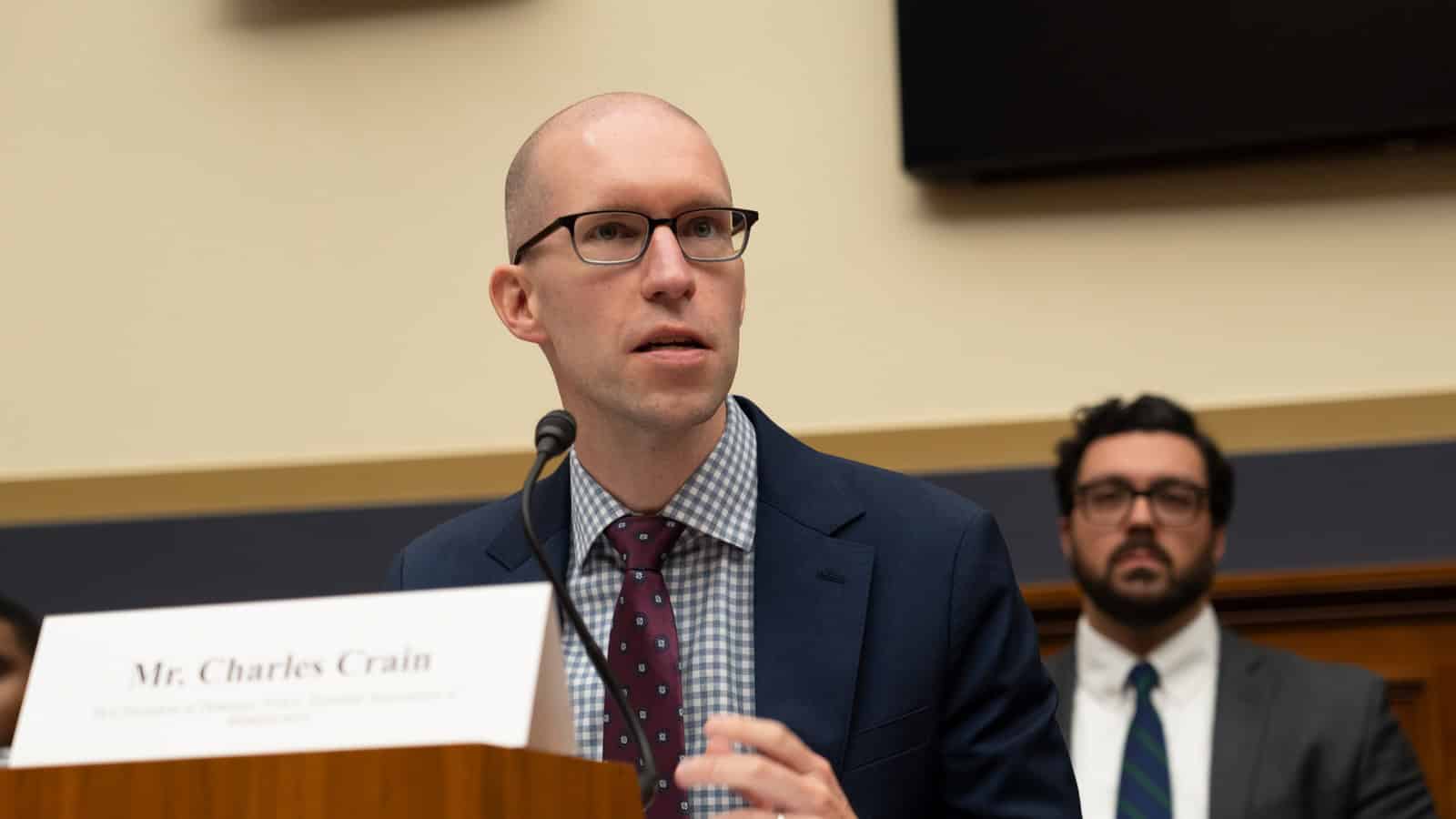Curb Proxy Firms, NAM Tells Congress

Less than three months after scoring a significant win for manufacturers against Securities and Exchange Commission overreach, the NAM was back in front of Congress to urge regulatory oversight of proxy advisory firms.
What’s going on: On Tuesday, the NAM testified before the House Financial Services Oversight and Investigations Subcommittee on the need to bring oversight and accountability to proxy advisory firms. These are entities that make recommendations regarding the way shareholders should vote on proxy ballot proposals brought before publicly traded companies.
- “Proxy firms are powerful, unaccountable actors that pose a real threat to Americans’ financial security. Manufacturers have been subject to these firms’ outsized influence for far too long,” NAM Vice President of Domestic Policy Charles Crain said during Tuesday’s hearing.
The background: In 2020, the SEC finalized an NAM-supported rule instituting important proxy reforms, such as requiring proxy firms to disclose any conflicts of interest. The NAM has fought in court to preserve the 2020 rule, successfully defeating the SEC’s attempts to suspend the rule and to rescind its most crucial provisions. The NAM is now back in court in a third case, defending the SEC’s authority to regulate these powerful market actors.
Surrendering to ISS: Institutional Shareholder Services Inc., the largest and most influential proxy advisory firm, is now “suing the SEC over its authority to issue the 2020 rule—not just the rule’s particulars, but the SEC’s ability to regulate proxy firms at all,” Crain continued.
- Troublingly, “the SEC is waving the white flag in the face of [the] challenge,” he told lawmakers, referring to the agency’s decision not to appeal after a district court sided with ISS earlier this year.
“Sole defender”: The NAM—now the “sole defender of the 2020 rule”—is appealing the district court’s decision.
What Congress should do: Legislators must take up the mantle, too, Crain concluded.
- “Congress should do what the SEC will not: affirm the SEC’s clear authority, provide much-needed oversight and accountability and help manufacturers and Main Street investors escape the outsized influence of proxy advisory firms.”
